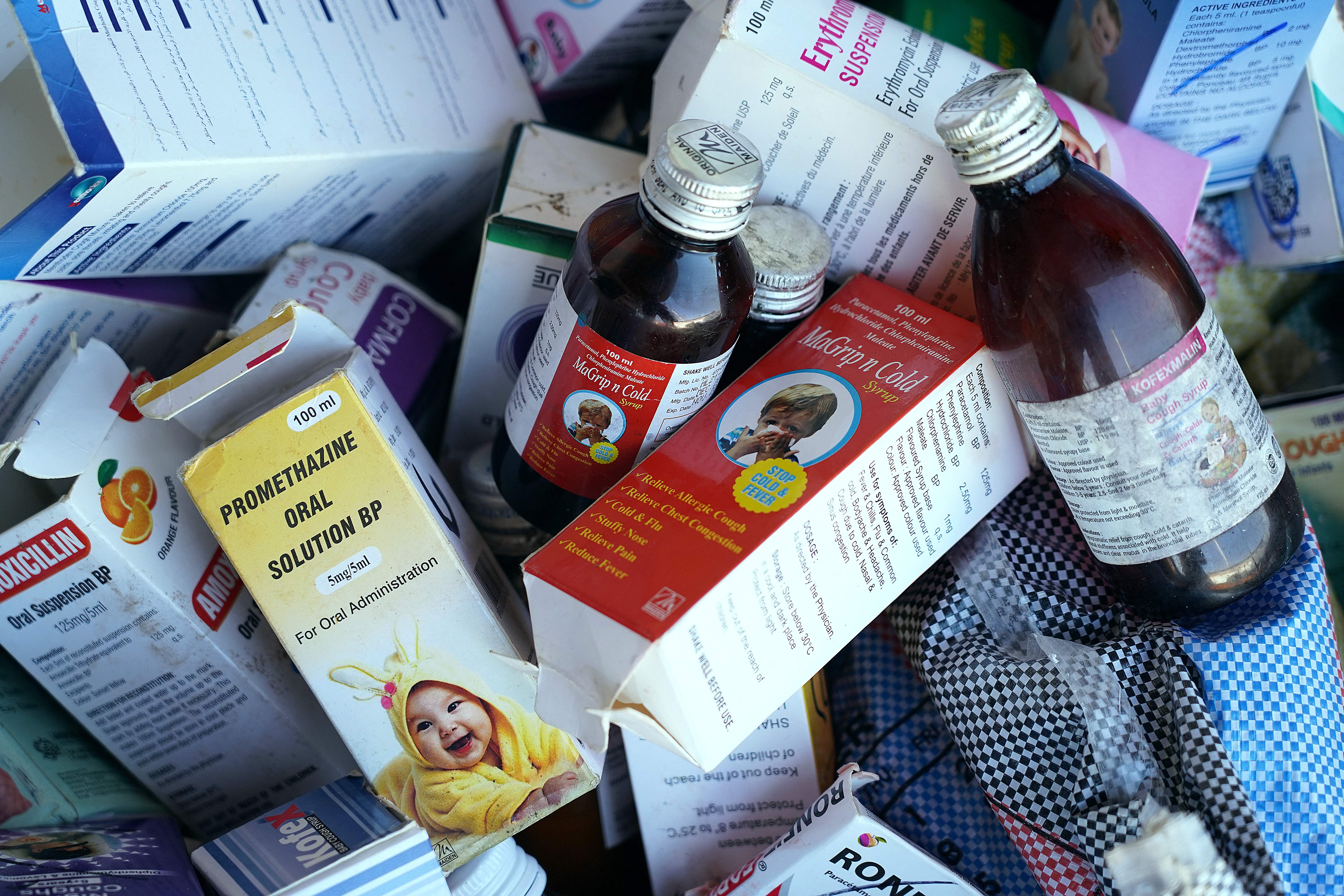Uzbekistan links deaths of at least 18 children to India-made syrup
The Gambia earlier linked another Indian drugmaker’s syrup to deaths of 70 children

Your support helps us to tell the story
From reproductive rights to climate change to Big Tech, The Independent is on the ground when the story is developing. Whether it's investigating the financials of Elon Musk's pro-Trump PAC or producing our latest documentary, 'The A Word', which shines a light on the American women fighting for reproductive rights, we know how important it is to parse out the facts from the messaging.
At such a critical moment in US history, we need reporters on the ground. Your donation allows us to keep sending journalists to speak to both sides of the story.
The Independent is trusted by Americans across the entire political spectrum. And unlike many other quality news outlets, we choose not to lock Americans out of our reporting and analysis with paywalls. We believe quality journalism should be available to everyone, paid for by those who can afford it.
Your support makes all the difference.Uzbekistan has claimed that at least 18 children have died in the country after consuming syrups manufactured in India.
According to the country’s health ministry, the children consumed cough syrup Doc-1 Max, manufactured by Indian drugmaker Marion Biotech, based out of Noida, located in the northern Uttar Pradesh state on the outskirts of India’s capital New Delhi.
Marketed on the company’s website as a treatment for cold and flu symptoms, the cough syrups were given to children without a doctor’s prescription and on the suggestion of the local pharmacists, with doses exceeding that advised for children, said the ministry in the statement.
According to the ministry, 18 out of 21 children who took the syrup while suffering from an acute respiratory disease died after consuming it. The lab tests found that a batch of the syrup contained ethylene glycol, a toxic substance in the preparation.
It was, however, not immediately clear if all or any of the children consumed the suspect batch or had consumed more than the standard dose or both. The syrup was imported into Uzbekistan by Quramax Medical LLC, said the ministry in its statement on Tuesday.
Following media reports, India’s drug regulator said in a statement that it had inspected Marion Biotech’s production facility and promised more action based on the probe report.
A legal representative of Marion Biotech said the Indian maker of pharmaceuticals and cosmetics regretted the deaths and the company has halted production of the Dok-1 Max syrup.
The drug regulator reviewed the company’s Noida facility in the Uttar Pradesh state and is in regular touch with its Uzbekistan counterpart, the Indian health ministry said in a statement.
“The samples of the cough syrup have been taken from the manufacturing premises and sent to Regional Drugs Testing Laboratory, Chandigarh for testing,” the ministry added.
Earlier, the Uzbek health ministry said it had dismissed seven employees for negligence for not analysing the deaths in a timely manner and taking necessary measures. The country also announced the withdrawal of Doc-1 Max tablets and syrups from all pharmacies.
The incident comes close on the heels of the reported deaths of at least 70 children in The Gambia were linked to cough and cold syrups made by Delhi-based Maiden Pharmaceuticals Limited.
The company and Indian authorities have, however, denied the medicines were at fault. India’s government has told the World Health Organisation that the cough syrups were “prematurely” linked to the incident, thereby “adversely” impacting the image of the country’s pharma industry.
A parliamentary committee in Gambia has recommended the government take legal action against Maiden Pharmaceuticals.
Known as the “pharmacy of the world”, India’s pharmaceutical exports have more than doubled over the past decade to $24.5bn in the past fiscal year.
Additional reporting by agencies
Join our commenting forum
Join thought-provoking conversations, follow other Independent readers and see their replies
Comments